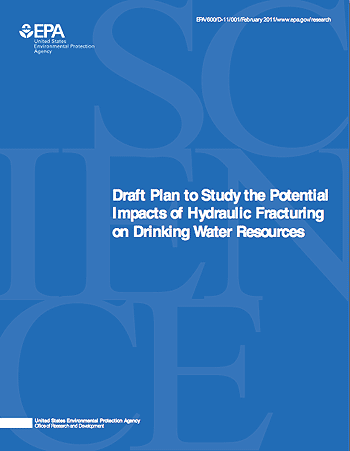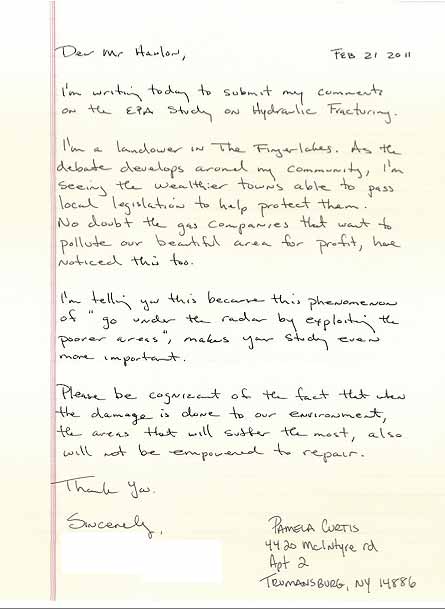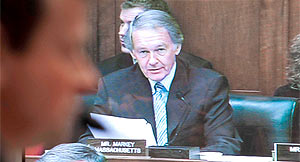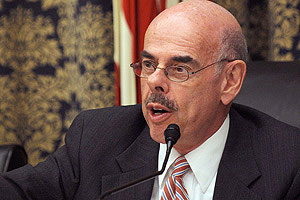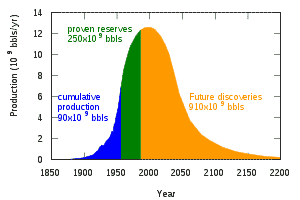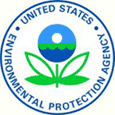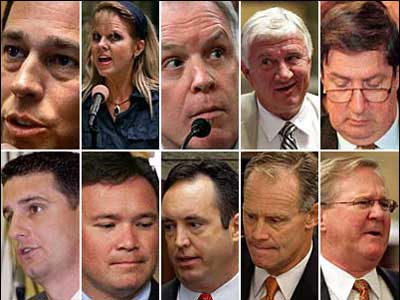Government
 EPA's Draft Hydraulic Fracturing Study Plan
EPA's Draft Hydraulic Fracturing Study Plan
 Science Advisory Board Public Comments Letters from the Public. March 7, 2011. Posted to Web.
Science Advisory Board Public Comments Letters from the Public. March 7, 2011. Posted to Web.
You can read all the form letters submitted from Texas, as well as my letter here:
| Public comment submitted to the SAB Staff Office | Public Comments submitted by Neil Zusman, Ithaca, NY-2-28-11. (PDF, 3 pp., 118,694 bytes) |
"The States have not shown that they can adequately regulate gas drilling, especially in more populated areas. Federal Regulations are clearly needed.
Time and time again, as noted by a Pew Research Group report, a wide variety of industries, in seat belts, lead paint, cigarettes and many others, have fought federal regulation only to have history prove that it never hurt their bottom line." (Neil Zusman, 2011-02-28).
See: Pew Environment Group (PEG) Factsheet: Industry Opposition to Government Regulation (PDF), October 14, 2010.
See: Letter from Thomas Curtis, AWW. Website below:
In summary, AWWA supports protecting of sources of drinking water under any and all circumstances, including hydraulic fracturing. We appreciate the agency’s consideration of our comments. If there are any questions about these comments, please direct them to Alan Roberson, AWWA, at (202) 326-6127.
Yours Sincerely,
Thomas W. Curtis Deputy Executive Director
See this hand-written letter by Pamela Curtis of Trumansburg, New York:
See: Federal Register: Science Advisory Board Staff Office; Notification of a Public Meeting of the Science Advisory Board Panel for the Review of EPA's Hydraulic Fracturing Study Plan. EPA Notice: 2/09/11.
The Environmental Protection Agency (EPA or Agency) Science Advisory Board (SAB) Staff Office announces a public face-to-face meeting of the SAB Panel to conduct an independent review of EPA's Draft Hydraulic Fracturing Study Plan.
The meeting will be held on March 7, 2011 from 9 a.m. to 5 p.m., and March 8, 2011 from 8 a.m. to 5 p.m. (Eastern Time).
The Panel meeting will be held at the Westin Alexandria Hotel located at 400 Courthouse Square, Alexandria, VA 22314.
Members of the public can submit comments for a federal advisory committee to consider as it develops advice for EPA. They should send their comments directly to the Designated Federal Officer for the relevant advisory committee.
Oral Statements: In general, individuals or groups requesting an oral presentation at this public meeting will be limited to five minutes per speaker. Interested parties should contact Mr. Edward Hanlon, DFO, in writing (preferably via e-mail), at the contact information noted above, by February 28, 2011 to be placed on the list of public speakers for the meeting.
Written Statements:
Written statements should be received in the SAB Staff Office by February 28, 2011 so that the information may be made available to the SAB Hydraulic Fracturing Study Plan Review Panel for their consideration.
In its Fiscal Year 2010 budget report, the U.S. House of Representatives Appropriation Conference Committee identified the need for a focused study of this topic. EPA scientists, under this administration and at the direction of Congress, are undertaking a study of this practice to better understand any potential impacts of hydraulic fracturing on drinking water and groundwater. EPA consulted with experts in the field through peer review, and technical workshops and engaged stakeholders in a dialogue about the study through facilitated public meetings.
EPA has submitted its draft study plan on hydraulic fracturing for review to the agency's Science Advisory Board (SAB).
The overall purpose of the study is to understand the relationship between hydraulic fracturing and drinking water resources. The scope of the proposed research includes the full lifespan of water in hydraulic fracturing, from acquisition of the water, through the mixing of chemicals and actual fracturing, to the post-fracturing stage, including the management of flowback and produced water and its ultimate treatment and disposal.
The SAB plans to review the draft plan March 7-8, 2011. Consistent with the operating procedures of the SAB, an opportunity will be provided for stakeholders and the public to provide comments to the SAB during their review. The Agency will revise the study plan in response to the SAB's comments and promptly begin the study. Initial research results are expected by the end of 2012 with a goal for a report in 2014.
See: Industry responds to public take on hydraulic fracturing | Fracking Resource Guide
See: EPA Hydraulic Fracturing Study Plan Review Panel
See: Lisa P. Jackson, EPA (lisapjackson) on Twitter
See: U.S. Congress. Committee on Space, Science, and Technology. "Hearing Highlights Lack of Objectivity in Draft EPA Fracking Study--No Evidence of Drinking Water Contamination from Fracking, Witnesses Say". May 11, 2011
There are now two websites for the House Energy and Commerce Committee- one for the Republicans and one for the Democrats. For citizens in the U.S., we are still living a Reaganesque "con", an obvious "tell" that Washington is more broken and redundant than ever.
In the David Mamet film, House of Games | Human Nature is a Sucker Bet (1987), Mike and his men [pulling a con job on Margaret] ...see that the jig is up, and nonchalantly pack up the con. Mike apologizes, saying it was “only business … nothing personal.” Margaret puts the pieces together. She spies on the con men--among whom is the "dead" cop/mark--and confirms that everything was a ruse to swindle her out of $80,000...
...Margaret pulls out her gun and dares Mike to beg for his life. He refuses and she shoots him repeatedly until he dies.
Much later, we see that Margaret has gone on with her life, a changed woman, now able to "forgive herself." She shows no sign of guilt or remorse for murdering Mike. She steals a gold lighter out of the purse of another woman in a restaurant and relishes the acquisition.
The energy business and its minions are fighting an undeclared war on the EPA, The Clean Water Act and public saftey. We are all being dragged into this con job. Their argument: the Clean Water Act does not directly address groundwater contamination. Groundwater protection provisions are included in the Safe Drinking Water Act, Resource Conservation and Recovery Act and the Superfund act.
Sounds redundant to me... just give me a cool drink of water 'fore i diiie. (Neil Zusman, 2011-02-02.)
Angelou chose "Just Give Me a Cool Drink of Water 'fore I Diiie" as the book's title because of her interest in "unconscious innocence," which she says is "even lovelier than trying to remain innocent." The title is a reference to her belief that "we as individuals ... are still so innocent that we think if we asked our murderer just before he puts the final wrench upon the throat, 'Would you please give me a cool drink of water?' and he would do so."Angelou has said that, if she "didn't believe that, [she] wouldn't get up in the morning." (Angelou, Maya; Elliot, Jeffrey M. (1989), Conversations with Maya Angelou, University Press of Mississippi, ISBN 0-87805-361-1.)
Update February 2, 2011
See: Andrew Schenkel. "Fracking finger-pointing starts as drinking water violations roll in." Mother Nature Network. 2011-02-01.
A report linking the fracking industry to violations of the Safe Drinking water Act is putting the biggest names in the fracking industry on the defensive. Democrats in the House Energy and Commerce Committee released a report on Monday (2011-01-31) that claims 12 companies in several states dumped more than 30 million gallons of diesel fuel as part of a scheme to extract natural gas from underground space.
See: Tom Zeller Jr. "Diesel Use in Gas Drilling Cited as Violation of Safe-Water Law." NYT. 2011-02-01.
No permits for diesel-based fracking have been sought or granted since the Safe Drinking Water Act was amended in 2005.
Lee Fuller, a vice president for government relations with the Independent Petroleum Association of America, said that was because the E.P.A. had never followed up by creating rules and procedures for obtaining such permits and submitting them for public comment.
The agency did quietly update its Web site last summer with language suggesting that fracking with diesel was, indeed, covered as part of the underground injection program, which would suggest that permits should have been obtained. But Mr. Fuller’s organization, along with the U.S. Oil and Gas Association, has gone to court to challenge the Web posting, arguing that it amounted to new rule-making that circumvented administrative requirements for notice and public commentary.
Thursday, February 18, 2010. "Chairman Henry A. Waxman and Subcommittee Chairman Edward Markey today sent letters to eight oil and gas companies that use hydraulic fracturing to extract oil and natural gas from unconventional sources in the United States. The Committee is requesting information on the chemicals used in fracturing fluids and the potential impact of the practice on the environment and human health."
As Chairman of the Committee on Oversight and Government Reform in the last Congress, Rep. Waxman requested and received information from the largest hydraulic fracturing companies - Halliburton, BJ Services, and Schlumberger - on the chemicals used in their fracturing fluids.
According to this data, two of these companies used diesel fuel in their fracturing fluids between 2005 and 2007, potentially violating a voluntary agreement with EPA to cease using diesel. Halliburton reported using more than 807,000 gallons of seven diesel-based fluids. BJ Services reported using 2,500 gallons of diesel-based fluids in several fracturing jobs. Halliburton and BJ Services also indicated that they used other chemicals - such as benzene, toluene, ethylbenzene, and xylene - that could pose environmental risks in their fracturing fluids.
Today Chairmen Waxman and Markey sent letters seeking additional information from Halliburton, BJ Services, and Schlumberger on these and related issues. The Chairmen requested similar information from five smaller fracturing companies that comprise a growing share of the market: Frac Tech Services, Superior Well Services, Universal Well Services, Sanjel Corporation, and Calfrac Well Services. In addition, the Chairmen sent a memo to Members of the Subcommittee on Energy and Environment detailing the background on the issue, including EPA's recent work on hydraulic fracturing, the Committee on Oversight and Government Reform's investigative findings, and the need for additional oversight and investigation."
Documents included: Examining the Potential Impact of Hydraulic Fracturing, Feburary 18, 2010
Letter to Andrew Gould
Letter to Roger Willis
Letter to David J. Lesar
Letter to Douglas R. Ramsay
Letter to Darin MacDonald
Letter to J.W. Stewart
Letter to Dan Wilks
Letter to David E. Wallace
See: Sabrina Shankman. "Congress Launches Investigation Into Gas Drilling Practices." ProPublica. 2010-02-19.
See: Abrahm Lustgarten. "Clearing the Air on ProPublica’s Drilling Pollution Story." ProPublica. 2011-01-31
See: Candice O'Grady. "Newsweek Greenwashes the Oil Lobby for Real." FAIR. Feb. 2010.
See: Committee Democrats Release New Report Detailing Hydraulic Fracturing Products
See: House committee votes to deny climate change
See: Action Center | Republicans for Environmental Protection (REP America)
The Energy Policy Act of 2005 (P.L. 109-58), signed by President Bush on August 8, 2005, was the first omnibus energy legislation enacted in more than a decade. Spurred by rising energy prices and growing dependence on foreign oil, the new energy law was shaped by competing concerns about energy security, environmental quality, and economic growth.
The Energy Policy Act encourages production on federal lands through royalty reductions for marginal oil and gas wells on public lands and the outer continental shelf. Provisions are also included to increase access to federal lands by energy projects — such as drilling activities, electric transmission lines, and gas pipelines.
In addition, the law prevents the Environmental Protection Agency (EPA) from regulating hydraulic fracturing to protect drinking water sources.
(For additional information, see CRS Report RL32873, Key Environmental Issues in the Energy Policy Act of 2005, coordinated by Brent D. Yacobucci, and CRS Report RL32262, Selected Legal and Policy Issues Related to Coalbed Methane Development, by Aaron M. Flynn.)
See: CRS Report RL33302.
A logistic distribution shaped production curve, as originally suggested by M. King Hubbert in 1956.
See the U.S. Department of Energy (DOE), International Energy Outlook, for information on energy trends.
The Energy Policy Act of 2005 (Pub.L. 109-58) is a bill passed by the United States Congress on July 29, 2005, and signed into law by President George W. Bush on August 8, 2005, at Sandia National Laboratories in Albuquerque, New Mexico. The act, described by proponents as an attempt to combat growing energy problems, changed US energy policy by providing tax incentives and loan guarantees for energy production of various types.
Criticisms
The Washington Post contended that the spending bill is a broad collection of subsidies for United States energy companies; in particular, the nuclear and oil industries.
..."House Majority Leader Tom DeLay (R-Tex.) also managed to insert at least $500 million in subsidies over a 10-year period -- with the option to double the amount -- for research into deep-water oil and gas drilling, a grant that many lawmakers expect to go to the Texas Energy Center in DeLay's home town of Sugar Land. The bill also includes royalty relief for deep-water drilling projects, a strategy that helped jump-start production in the Gulf during the 1990s..."
Senator Hillary Rodham Clinton made the bill an issue in the 2008 Democratic Primary by criticizing Senator Barack Obama’s two votes supporting the bill, calling it the "Dick Cheney lobbyist energy bill."
This bill exempted fluids used in the natural gas extraction process of Hydraulic fracturing from protections under the Clean Air Act, Safe Drinking Water Act, and CERCLA. The proposed Fracturing Responsibility and Awareness of Chemicals Act would repeal these exemptions.
Please note that information taken from Wikipedia should be verified using other, more reliable sources. It is a good place to start research, but because anyone can edit Wikipedia, we do not recommend using it in research papers or to obtain highly reliable information.
Hydraulic Fracturing Study Plan Review Panel
The Panel will review and provide independent expert advice on EPA’s draft Hydraulic Fracturing Study Plan that will investigate the potential public health and environmental protection research issues that may be associated with hydraulic fracturing.
It will be led by David A. Dzombak, professor of environmental engineering at Carnegie Mellon University.
Legere, Laura. "Peer-review panel for EPA fracking study includes six Pa. scientists." The Scranton Times-Tribune. Jan. 18, 2011.
A panel of geologists, toxicologists, engineers and doctors that will peer-review a high-profile Environmental Protection Agency study of hydraulic fracturing will include six scientists from Pennsylvania, more than any other state.
The panel will review the techniques and analysis the EPA uses to draft a study of the potential environmental and health impacts of hydraulic fracturing - the process used in natural gas exploration of injecting a high-pressure mix of chemically treated water and sand underground to break apart a rock formation and release the gas.
...In a memo announcing the new panel, the EPA found "no conflicts of interest or appearances of a lack of impartiality for the members of this panel."
See: Natural Gas Drillers Protest Nomination of Fracking Critics for EPA Review Panel
See also: Hydraulic Fracturing Study Plan
Determination Memo:
Posted 01/13/2011
Determination Memo for this Activity. (1/27/2011, PDF, 11 pp., 44,581 bytes)
Members:
| Dzombak, David A. | Chair | Carnegie Mellon University | Pittsburgh | PA |
| Alexeeff, George | California Environmental Protection Agency | Oakland | CA | |
| Ballestero, Tom | University of New Hampshire | Durham | NH | |
| Benjamin, Mark | University of Washington | Seattle | WA | |
| Boufadel, Michel | Temple University | Philadelphia | PA | |
| Boyer, Elizabeth | Pennsylvania State University | University Park | PA | |
| Burnett, David | Texas A&M University | College Station | TX | |
| Davis, Thomas L. | Colorado School of Mines | Golden | CO | |
| Dunn-Norman, Shari | Missouri University of Science and Technology | Rolla | MO | |
| Giesy, John P. | University of Saskatchewan | Saskatoon | Saskatchewan | |
| Griffiths, Jeffrey | Tufts University | Boston | MA | |
| Gschwend, Phillip | Massachusetts Institute of Technology | Cambridge | MA | |
| Harris, Cynthia M. | Florida A&M University | Tallahassee | FL | |
| Kim, Nancy K. | Health Research, Inc. | Troy | NY | |
| Lee, Cindy M. | Clemson University | Anderson | SC | |
| Patten, Duncan | Montana State University | Bozeman | MT | |
| Randtke, Stephen | University of Kansas | Lawrence | KS | |
| Reible, Danny | University of Texas | Austin | TX | |
| Schreppel, Connie | Mohawk Valley Water Authority | Utica | NY | |
| Thyne, Geoffery | University of Wyoming | Laramie | WY | |
| VanBriesen, Jeanne | Carnegie Mellon University | Pittsburgh | PA | |
| Vidic, Radisav | University of Pittsburgh | Pittsburgh | PA |
GEMS: Great Environmental Moments in Science |
||
|
||
|
||
|
Executive Message:
...As an agency, we are ready to face scientific challenges in 2011 that range from mountain top mining to hydraulic fracturing to endocrine disruption and more. But the reason it’s so important to invest in the kind of new thinking, methods, and approaches that Administrator Jackson has called for, is to ensure our ability to take on those challenges we can’t foresee. Innovative thinking and sustainable approaches will be out best tools to confront new environmental challenges as they arise.
Sincerely,
Paul T. Anastas
Assistant Administrator
U.S. EPA
Office of Research and Development
Between now and October 1st, the state legislature will debate a new tax on natural gas extraction. But because of a loophole in the state's campaign finance laws, legislators will likely cast their votes before disclosing recent donations. That means the gas industry and environmental groups can flood Harrisburg with contributions without anyone knowing where the money is going.
That's why "It's Our Money” and Common Cause have teamed up to create a place where lawmakers can report contributions in real time: Marcellus Shale Money Watch.
Pennsylvania's environmental destruction is not limited to gas drilling. See: Coalfield Justice Blog, "What Could Be Worse?
Here is what could be worse: all the concern about shale gas has made the public unaware of other continuing problems. Big coal continues to destroy houses and streams. No one is demanding that the long overdue Act 54-required study of longwall mining be released. Big coal is continuing to do as it will with coal ash. With budget cuts in DEP, longwall enforcement, which has never been adequate, will be even worse.
The Continental Center and KBR Tower (foreground) in downtown Houston.
Photo by Blair McFarlain.
The London lawyer accused by American authorities of helping KBR and its partners bribe Nigerian officials lost his battle against extradition yesterday.
The British High Court affirmed a decision to send Jeffrey Tesler, 62, a U.K. citizen, to Houston to answer criminal charges in federal court. He faces up to 55 years in prison and forfeiture of more than $132 million.
Tesler was indicted in February 2009. He was charged with one count of conspiracy to violate and ten counts of violating the FCPA. The DOJ alleges he was part of a decade-long scheme to bribe Nigerian government officials in exchange for contracts worth $6 billion to build liquefied natural gas facilities on Bonny Island, Nigeria.
His co-defendant, Wojciech Chodan, KBR's former commercial vice president at a U.K. subsidiary, was extradited from Britain in December last year. He pleaded guilty in Houston federal court to conspiring to violate the FCPA.
Chodan's sentencing is scheduled for February 22, 2011. He faces up to five years in prison on the conspiracy charge. As part of his plea agreement, Chodan, 72, who's also a U.K. citizen, agreed to forfeit $726,885.
See: Barry Meier and Clifford Krauss. "Inquiry Puts Halliburton in a Familiar Hot Seat". NYT Business Day. October 28, 2010.
Last year, for example, Halliburton and KBR agreed to pay $579 million to settle charges brought by the Justice Department and the Securities and Exchange Commission in connection with bribes that KBR had paid to top Nigerian officials over a decade. The companies still face criminal liability in Nigeria over the episode, which involved contracts to build a liquefied natural gas complex.
See: Snamprogetti, ENI In $365 Million Settlement
See: Fracking Resource Guide | Halliburton (updated)
Richard L. Cassin lived in the Middle East and Asia for 25 years. Before founding Cassin Law LLC, he was a senior partner in a major international law firm and managing partner of its Asia practice in Singapore, Hong Kong and Beijing.
He helps clients comply with the Foreign Corrupt Practices Act and other U.S. laws, and regularly assists companies facing compliance issues.
Get Involved
If you think you might be affected by a proposed natural gas or hydroelectric project regulated by the Commission, you have certain rights. These rights range from being able to look at project correspondence to becoming an intervener and being able to appeal any FERC decisions in federal court.
The Commission's Citizen's Guides are a good place to start.
|
Should I Get Involved? Only you can ultimately answer this but we can help you think things through. Read More. |
How to Get Involved Take advantage of a suite of electronic services to easily get involved. Still prefer paper? That's fine too. Read more. |
The Process Natural gas and hydropower projects have distinct processes. This overview will help you to participate. Read More |
The Federal Energy Regulatory Commission, or FERC, is an independent agency that regulates the interstate transmission of electricity, natural gas, and oil.
Contains sections on how to file a Freedom of Information Act (FOIA) request, Enforcement, Legal Resources, Dispute Resoulution Service (DRS), etc.





